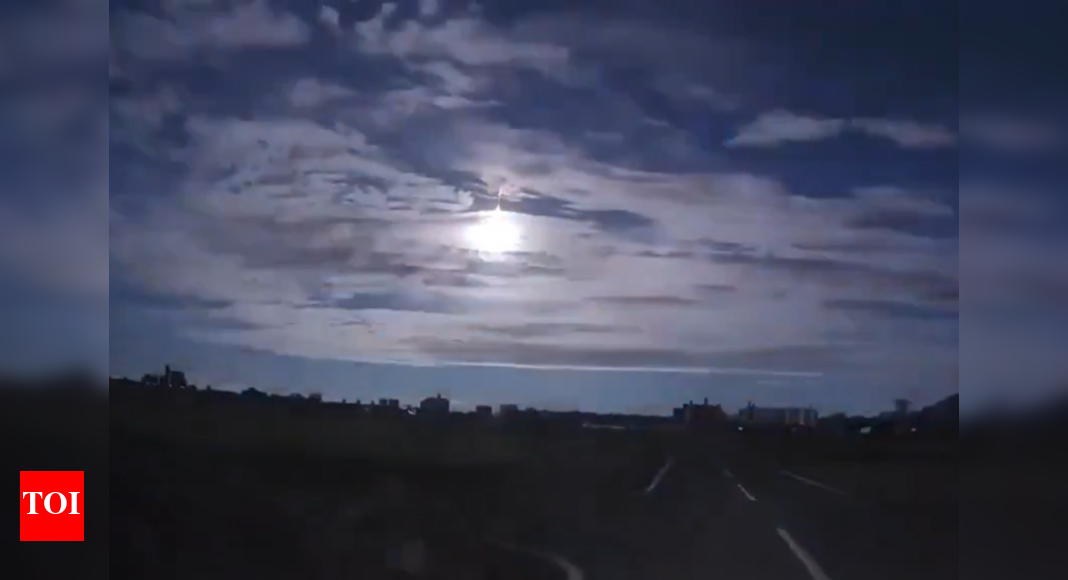The night sky full of stars and other dazzling celestial bodies has fascinated human beings, whether a child or an adult. These rare, dazzling phenomena remind us of the dynamic nature of space and the continuous interaction between our planet and celestial objects.While the Perseid meteor season is around the corner, an extremely bright fireball-like object recently burned over Japan’s sky, which was no less than a breathtaking moment when a bright fireball lit up the sky, briefly turning night into day.
A bright fireball turns the night sky to daylight!
On the night of August 19, a fireball illuminated the skies over southern Japan, creating a beautiful display visible from hundreds of miles away. The event occurred at 11:08 p.m. local time and was spotted streaking southwest above cities like Kagoshima and Kumamoto. The fireball was so bright that it was also seen as far east as Osaka’s Kansai Airport, approximately 200 kilometers from the initial sighting.
This moment was captured on several CCTVs
Multiple surveillance cameras and dashcams captured the fiery showdown, showing the meteor flashing with vivid green-blue lights. According to footage shared on social media, the fireball’s brightness was intense enough to temporarily overwhelm some camera sensors. It ended with a final burst of orange-red light before breaking apart near the horizon over the Pacific Ocean.
What are meteors ?
Meteors commonly called “shooting stars,” are bits of space debris left over from the formation of the solar system. When these particles enter Earth’s atmosphere at high speeds, friction causes them to heat up and burn, creating a bright streak of light visible to observers on the ground. Larger fragments that glow even more brightly are known as fireballs, often outshining the brightest planets in the night sky.At the time of this event, two meteor showers were active, the Perseids, famous for producing brilliant fireballs, and the weaker kappa Cygnids (KCG). However, it remains unclear if the August 19 fireball was linked to either of these showers or was simply a sporadic meteor, when a random piece of space debris entered Earth’s atmosphere.
